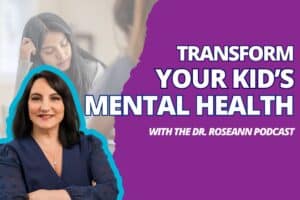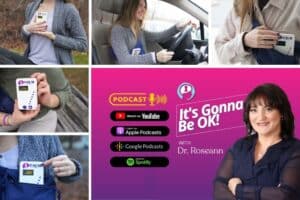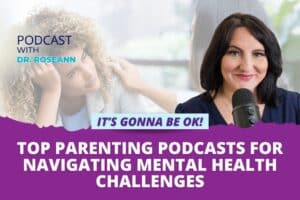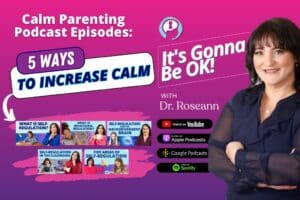It's the teenage years, and you're dealing with more than just a typical teenager. You're also dealing with Attention Deficit Hyperactivity Disorder (ADHD), which can make things a lot more complicated.
ADHD is a neurodevelopmental disorder that may go beyond hyperactivity and attention issues. It can also affect a young person's executive functioning skills, particularly time management, organization, and impulse control.
Challenges Faced by a Teenager with ADHD and How to Handle Them
ADHD can turn a teenager's life into a world of challenges. Peer pressure, academic demands, and the hormonal whirlwind of the teen years can magnify these issues. They might be more prone to frustration, mood swings, and difficulty in forming healthy relationships.
It's not unusual for these kids to be consistently running late, forgetting important tasks, or feeling overwhelmed by the sheer volume of daily activities. These can affect their academic performance and, subsequently, their self-esteem.
Teenagers diagnosed with ADHD may also find it challenging to juggle social activities. Interacting with peers, adhering to social norms, and handling peer pressure can be particularly stressful for them. The fear of rejection or feeling out of place can make socializing a real minefield.
Because they are more susceptible to peer pressure in high school, they often act on impulse without considering the consequences. For that reason, they may find it hard to avoid risky behaviors like substance abuse. That’s why parents need to provide guidance and coping strategies to help their teenagers recognize and manage these impulses more healthily.
But the good news is there are ways to help your teenage child thrive in the face of ADHD without resorting to SSRI or stimulant medications. One of the most effective treatments is Cognitive Behavioral Therapy (CBT). It equips your child with strategies to manage impulsive behaviors, cope with frustration, and enhance self-control. It's not magic, but it's pretty close.
Here are expert tips on how to cope with ADHD as a teenager:
1. Create a Supportive Environment at Home and School
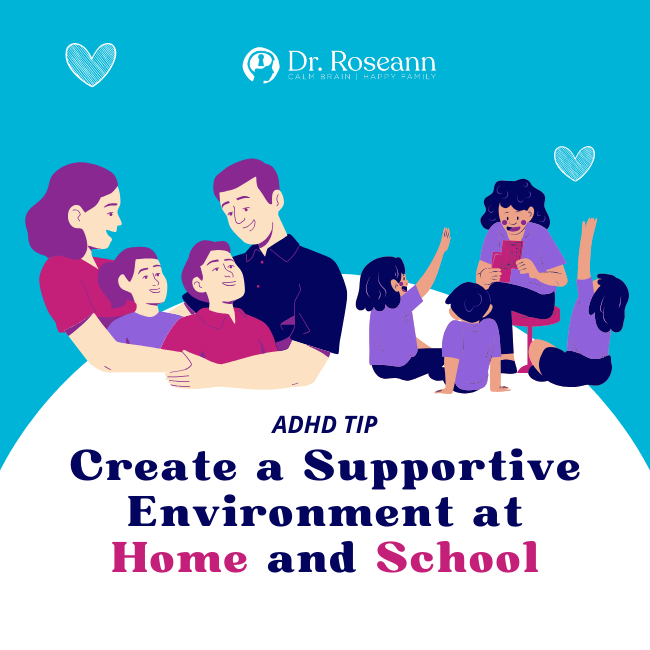
Building a strong support system is crucial. Clear routines, reward systems, and open communication can make a ton of difference at home. At school, establish a strong partnership with your child’s teachers and the school counselor. Getting extra support, 504s and school accommodations, such as extra time on tests and assignments, can level the playing field for your teen.
2: Develop Effective Study Habits and Time Management Skills
Time management can be an ADHD teen's kryptonite. But they can conquer it with the right tools. Teach them how to prioritize tasks and set realistic goals. Encourage regular study routines and minimize distractions – this means less time on social media and more time on homework and learning activities.
Challenges related to organization, time management, and planning (commonly referred to as OTP) play a significant role in academic difficulties experienced by adolescents with ADHD. As frustrating as these difficulties can be, parents are often in a prime position to facilitate the improvement of these skills (Sibley et al., 2015).
3: Build Healthy Habits and Routines
A healthy lifestyle goes a long way in managing ADHD symptoms. Regular physical activity, like team sports, martial arts, or even just daily exercise, can help channel that extra energy. A balanced diet with whole foods is essential, as is ensuring your teen gets sufficient sleep. After all, an overtired teenager is a recipe for disaster.
In a research done on 2662 kids, results indicate a link between not having enough magnesium and getting diagnosed with ADHD. Furthermore, it was observed that kids with ADHD had lower levels of magnesium in their saliva compared to healthy kids (Effatpanah et al., 2019).
4: Learn Strategies for Improving Organization and Prioritization
Organization is an area where many teens with ADHD struggle. Invest in tools like calendars, planners, and checklists. Teach them the importance of breaking down big tasks into smaller, manageable steps.
5. Build Self-Esteem and Manage Emotions
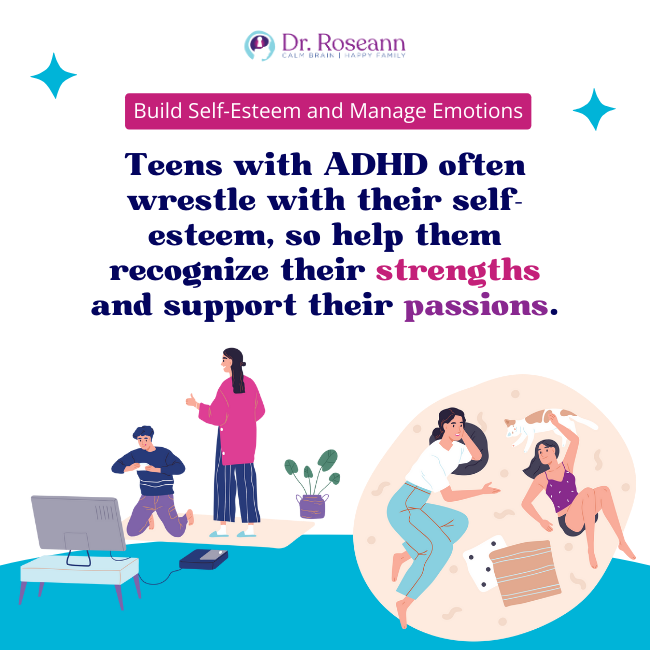
Teens with ADHD often wrestle with their self-esteem. Help them recognize their strengths and support their passions, be it music lessons or extracurricular activities. Encourage open conversations about emotions and provide a safe space for them to express their feelings.
6: Practice Stress Management
Stress management is vital for every teenager, and even more so for those with ADHD. Teach relaxation techniques, such as deep breathing and mindfulness, to help your child stay centered during overwhelming moments.
7. Nurture Healthy Relationships and Social Skills
Navigating social interactions can be a minefield for any teenager, but more so for those with ADHD. Work on developing social skills and offering guidance on handling peer pressure and difficult social situations.
Teens with ADHD often face challenges when it comes to making friends and being part of social groups. They might find it tough to connect with other kids and could sometimes feel left out or alone (Deboo & Prins, 2007).
8. Seek Support from Family, Friends, and Professionals
It takes a village to raise a child, and that's especially true when dealing with ADHD. Lean on family members, friends, mental health professionals, and support groups. Remember, you don’t have to do this alone. It's okay to ask for help when needed.
9. Promote a Positive Attitude
Perhaps the most important thing is to instill in your teenager a positive attitude. ADHD might make things more challenging, but it doesn't define them. The best way to do it is to encourage them to dream big, set goals, and believe in themselves.
10. Combine Natural Solutions with Lifestyle Changes
Science-backed natural solutions are an alternative to stimulant medications, and they can be effective. But it's not the only answer. Combining lifestyle changes and coping strategies can provide long-lasting effects.
The BrainBehaviorResetTM Program is a comprehensive program designed to help teenagers with ADHD regain control of their lives by enhancing executive functioning skills and emotional regulation. By focusing on strategies to improve focus, attention, and self-esteem, the program empowers your teenager to overcome the challenges associated with ADHD.
It offers a holistic approach that complements existing treatment options, such as neurofeedback, PEMF, and magnesium supplementation, among others. This program works as a valuable ADHD treatment plan in the journey toward a balanced and successful life.
There will be lots of ups and downs when parenting a teenager with ADHD, Some days will feel like a breeze, while others may be a hurricane. But with the right support and a lot of patience, you can navigate this challenging terrain.
Your teenager, with all their quirks and strengths, has the potential to not just cope with ADHD but also to thrive. With your guidance and these coping skills, your extraordinary teenager will be ready to conquer their world.
Parent Action Steps
☐ Learn about how ADHD affects your teenager's life.
☐ Foster open dialogue about their ADHD struggles and goals.
☐ Get a professional diagnosis if your teenager is suspected of having ADHD.
☐ Discuss natural treatment options with healthcare providers.
☐ Establish consistent daily routines, especially if attending school at home.
☐ Provide tools like calendars and checklists to stay organized.
☐ Nurture their self-esteem and offer emotional support.
☐ Assist in developing strong social skills.
☐ Promote a balanced diet, exercise, and proper sleep.
☐ Work with the school for necessary school accommodations.
☐ Join parent support groups for kids with ADHD.
☐ Monitor how your teens spend time on certain tasks.
☐ Take this ADHD Quiz to know if your child has ADHD or something else.
☐ Use the Solutions Matcher to get personalized treatment for your child
Citations
Deboo, G., & Prins, P. (2007). Social incompetence in children with ADHD: Possible moderators and mediators in social-skills training. Clinical Psychology Review, 27(1), 78–97. https://doi.org/10.1016/j.cpr.2006.03.006
Effatpanah, M., Rezaei, M., Effatpanah, H., Effatpanah, Z., Varkaneh, H. K., Mousavi, S. M., Fatahi, S., Rinaldi, G., & Hashemi, R. (2019). Magnesium status and attention deficit hyperactivity disorder (ADHD): A meta-analysis. Psychiatry Research, 274, 228–234. https://doi.org/10.1016/j.psychres.2019.02.043
Sibley, M. H., Campez, M., Perez, A., Morrow, A. S., Merrill, B. M., Altszuler, A. R., Coxe, S., & Yeguez, C. E. (2015). Parent Management of Organization, Time Management, and Planning Deficits among Adolescents with ADHD. Journal of Psychopathology and Behavioral Assessment, 38(2), 216–228. https://doi.org/10.1007/s10862-015-9515-9
Are you looking for SOLUTIONS for your struggling child or teen?
Dr. Roseann and her team are all about science-backed solutions, so you are in the right place!
Grab your complimentary copy of
147 Therapist-Endorsed Self-Regulation Strategies for Children: A Practical Guide for Parents
You can get her books for parents and professionals, including: It’s Gonna Be OK™: Proven Ways to Improve Your Child’s Mental Health, Teletherapy Toolkit™ and Brain Under Attack: A Resource For Parents and Caregivers of Children With PANS, PANDAS, and Autoimmune Encephalopathy.
If you are a business or organization that needs proactive guidance to support employee mental health or an organization looking for a brand representative, check out Dr. Roseann’s professional speaking page to see how we can work together.
Dr. Roseann is a Children’s Mental Health Expert and Therapist who has been featured in/on hundreds of media outlets including, CBS, NBC, FOX News, PIX11 NYC, The New York Times, The Washington Post, Business Insider, USA Today, CNET, Marth Stewart, and PARENTS. FORBES called her, “A thought leader in children’s mental health.”

She is the founder and director of The Global Institute of Children’s Mental Health and Dr. Roseann Capanna-Hodge, LLC. Dr. Roseann is a Board Certified Neurofeedback (BCN) Practitioner, a Board Member of the Northeast Region Biofeedback Society (NRBS), Certified Integrative Mental Health Professional (CIMHP) and an Amen Clinic Certified Brain Health Coach. She is also a member of The International Lyme Disease and Associated Disease Society (ILADS), The American Psychological Association (APA), Anxiety and Depression Association of America (ADAA) National Association of School Psychologists (NASP), International OCD Foundation (IOCDF) International Society for Neurofeedback and Research (ISNR) and The Association of Applied Psychophysiology and Biofeedback (AAPB).
© Roseann-Capanna-Hodge, LLC 2023



